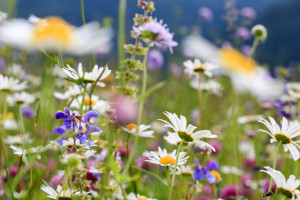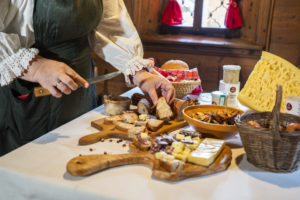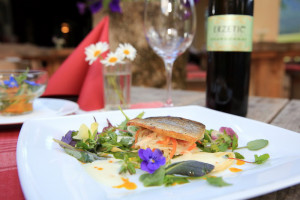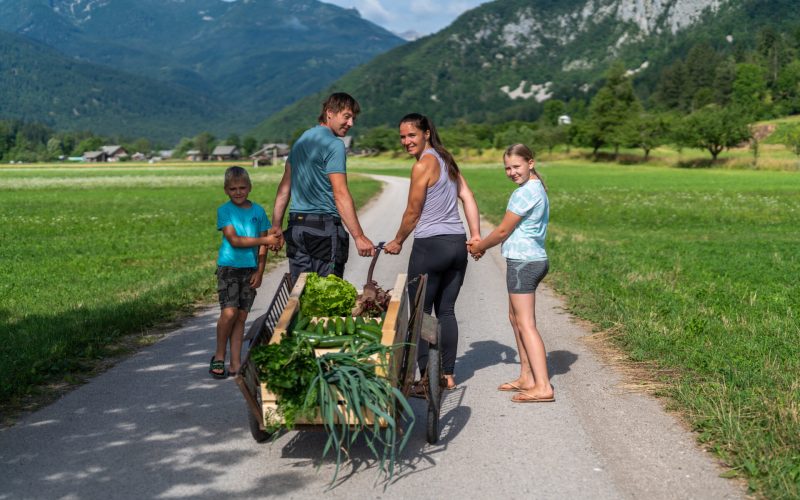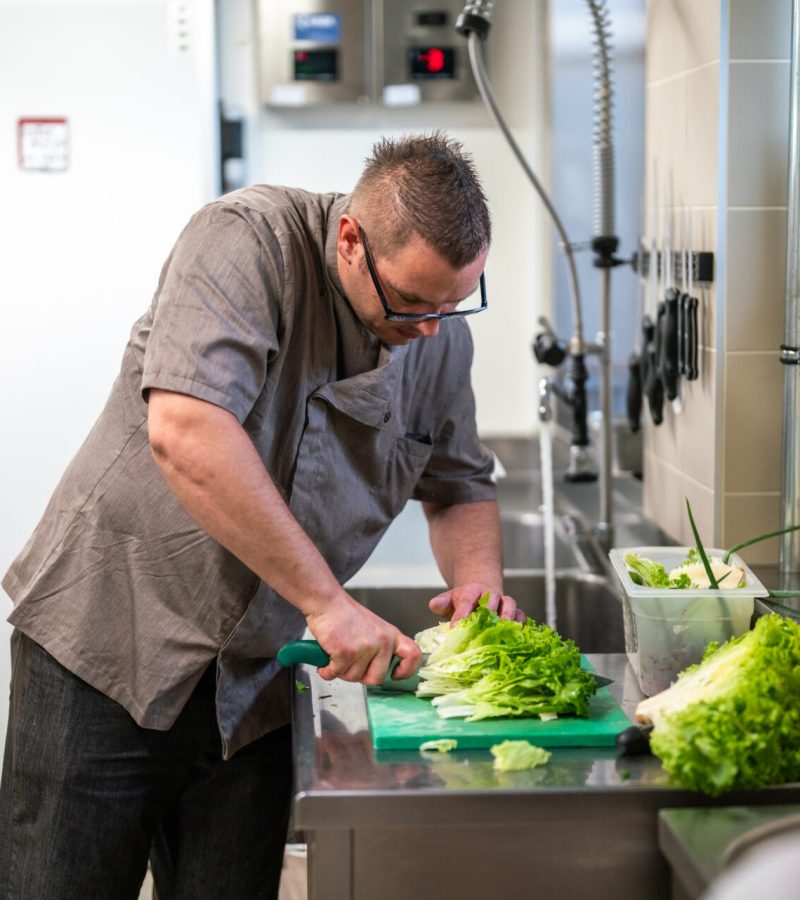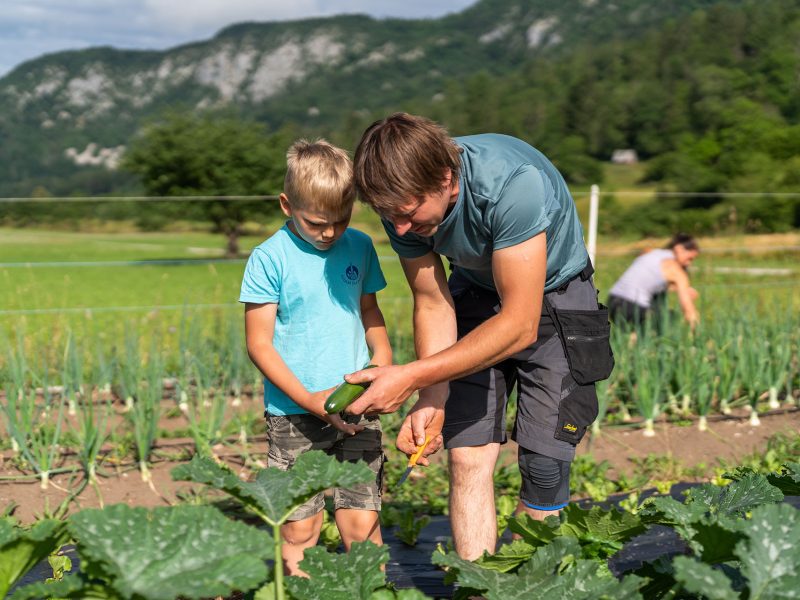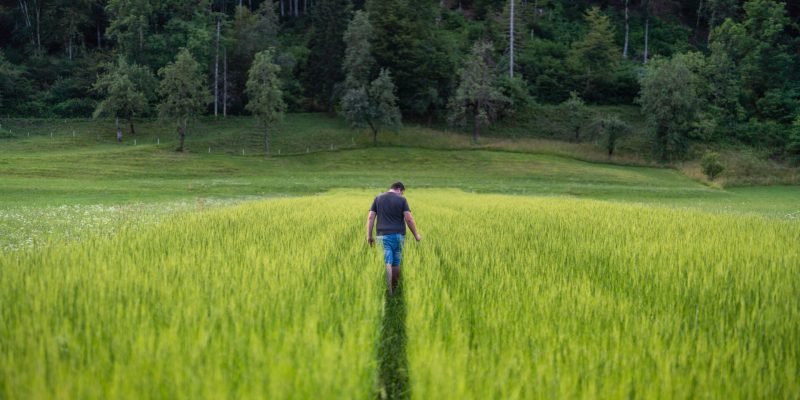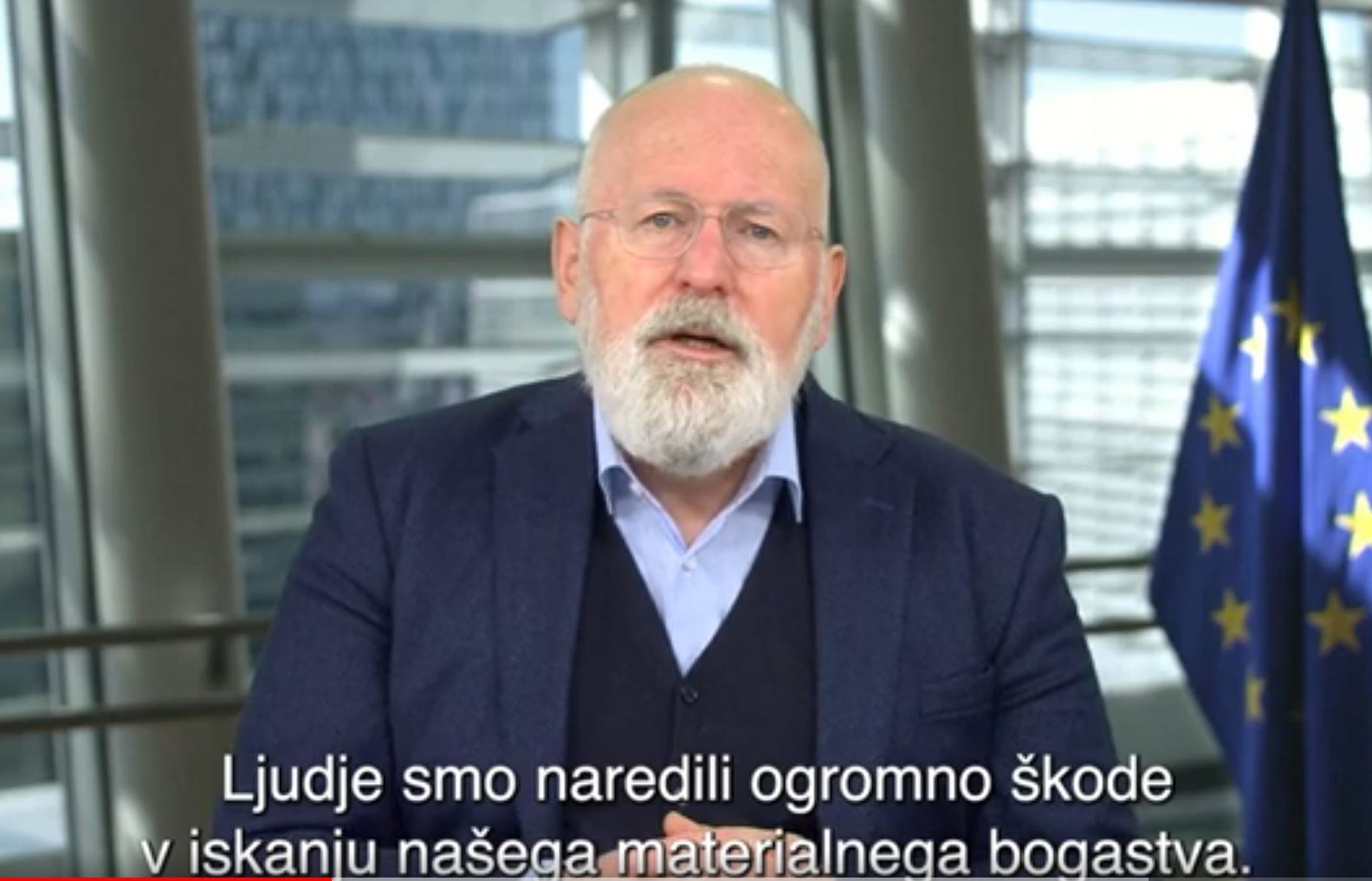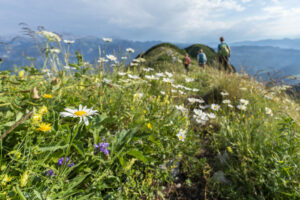In recent years, there has been a growing emphasis on sustainable development in all areas. The strategic orientations and documents clearly identify the need for change, which is wide-ranging and crucial. This is also the case for the development of protected natural areas, which are part of everyday life and part of the global environment.
The interests of residents and visitors are intertwined, putting nature under pressure. The key question is how to change human attitudes towards the environment at the level of society, groups and individuals, without going to extremes, but through a persistent and gradual approach.
New, modern ways of sustainable coexistence need to be found, taking into account the experiences and beliefs of each individual, and involving privileged leaders and change agents.
2024 Conference
Among the many challenges we face in putting the principles of the Green Deal into practice, this year’s conference will specifically address the issue of how to maintain and develop farming in protected nature areas, where farming itself is a nature conservation measure.
The extent to which the establishment of local food chains, the strengthening of sustainable forms of tourism and development policy measures can contribute to this will be highlighted in a panel discussion.
CONFERENCE PROGRAMME
Opening greetings to participants and guests:
- Klemen Langus, director, Turizem Bohinj
- dr. Tit Potočnik, director, Triglav National Park
- Jože Sodja, mayor, Municipality of Bohinj
Next steps to achieve Green Deal goals
- dr. Wolfgang Burtscher, director general, DG AGRI-CAP and challenges of sustainable development
- Franc Bogovič, MEP- Challenges of Green Dea
- Peter Schmidt, EESC- UN SDG and civil society
- Prof. Alessandra, UN Tourism-Challenges of sustainable tourism
Orientations for policy implementation in support of sustainable development of protected areas
- Jože Novak, Minister, Ministry of Natural Resources and Spatial Planning
- dr. Blaž Germšek, State Secretary, Ministry of Agriculture Forestry and Food
- Dubravka Kalin, director general, Ministry of Economy, Tourism and Sport
The state of nature, agriculture, and tourism in nature protected areas
- Teo Hrvoje Oršanič, director, Institute of the Republic of Slovenia for Nature Conservation
- Roman Žveglič, president, Chamber of Agriculture and Forestry of Slovenia
- Maja Pak Olaj, director, Slovenian Tourist Board
Panel discussion: how to support farming and guide tourism to preserve nature
- moderated by prof. dr. Emil Erjavec
We invite farmers, conservationists, tourism professionals, experts who prepare, manage and steer development policies and projects or are scientifically engaged in sustainable development issues, and interested members of the public.
The conference is fee-free. Due to the limited number of participants, pre-registration is required,no later than 30.4.2024.
Additional information
The panel will feature speakers we consider to be the most relevant at the moment. We asked them to outline the key challenges to the sustainable development of sensitive areas and how they think they should be addressed.
The first part of the panel “What is the way forward to achieve the Green Deal?” will be presented by policy makers at EU level:
The Common Agricultural Policy is facing major challenges and we are very honoured to have the Director-General, Dr Wolfgang Burtscher, who with his exceptional knowledge, experience and clear vision is leading the implementation of the EU’s key orientations through the Common Agricultural Policy. He is a great conversationalist and without doubt the person who knows and understands the challenges of the future best and has the knowledge of how to address them.
The European Parliament is directly involved in implementing the objectives of the Green Deal and MEP Franc Bogovič has been extremely involved in the adoption of legislation in this area. A passionate defender of agriculture, with an exceptional knowledge of the situation and the state of play, he has always been very critical of the (over)ambition of the scope and the timeframe envisaged. We are delighted that he will share with us his experience and vision of the way forward.
The European Economic and Social Committee, an institution of organised civil society at EU level, plays a consultative role in the adoption of European legislation. Peter Schmidt is chair of the Expert Group on Agriculture, Rural Development and the Environment (NAT), which is responsible for a wide range of issues such as the Common Agricultural Policy (CAP), sustainable food supply, environmental protection, the circular economy, the implementation of the UN Sustainable Development Goals (SDGs) and climate change. He is an excellent expert in these fields who enjoys a high reputation on the European stage and his presentation on the need to focus on sustainable food systems was a very important contribution to the consultation.
The World Tourism Organisation (UN Tourism) is the United Nations agency responsible for promoting responsible, sustainable and universally accessible tourism. As a leading international tourism organisation, it promotes tourism as a driver of economic growth, inclusive development and environmental sustainability, and offers leadership and support to the sector in advancing knowledge and tourism policies worldwide. Until recently, the European Office was headed by Prof Alessandra Priante, who currently heads the Italian Tourism Organisation (ENIT). She will bring her wealth of experience and wide-ranging knowledge to the topic of the way forward to achieve the goals of the Green Deal.
The policy design for this Financial Perspective has set high targets and an ambitious timetable. The extent to which we have already succeeded in putting them into practice and how the process will continue are important questions, as well as whether there has been any change in the way these principles are being put into practice.
The legislative process has been hotly debated, and we have been confronted with warnings that such radical changes as are being planned risk food security and the uncompetitiveness of the food sector. The farmers’ protests of last year and this year have made it clear that these are extremely complex processes that urgently require a comprehensive food policy, fair relations in the agri-food chain that guarantee farmers a fair income for their food production and a more balanced and sustainable rural development. This is in recognition of the fact that the direction of the Green Deal is the right one, and that the path needs to be defined in consensus with stakeholders.
At the same time, we are facing the challenge of farm abandonment in areas less suitable for farming, a decline in the number of small farms, a low proportion of young farmers and low incomes from farming.
The objectives of the Green Deal are embedded in all development documents. To what extent are they already being felt in policy implementation, what is the response of stakeholders, will they deliver the expected results and what are the next steps in translating the objectives into implementation documents.
But change also affects the way individuals and groups act when making development decisions. How they are affected is also reflected in the situation and trends in specific sectors and areas. The consultation also aims to shed light on the state of agriculture, nature conservation and tourism, recent trends and future prospects.
MORE ABOUT THE PROJECT
Sustainable development is a process that requires clear direction and sustained action. Through our activities, we want to raise awareness of the need for this process and prove as an example of good practice. This was one of the reasons for organising the first consultation. The consultation and the subsequent meeting produced useful content, which you can find below.
2023 CONFERENCE
The 17th International Wildflower Festival, a traditional event aimed at promoting the sustainable development of the fragile Alpine region, was organised in Bohinj from 19 May to 4 June 2023. This year’s event included a live and webcast conference. The aim was to address challenges in terms of food production, tourism and nature conservation in protected areas.
The conference brought together 80 experts who prepare, manage, steer or advise on specific development projects on the ground, development policy makers, representatives of civil society from various fields, and experts working in the scientific field on sustainable development issues.
Contributions on the theme of the event were made by the Vice President of the European Commission Frans Timmermans, members of the European Economic and Social Committee, MEP Franc Bogovič, Ministers Uroš Brežan and Matjaž Han, State Secretary Dr Darij Krajčič, President of the Chamber of Agriculture and Forestry of Slovenia Roman Žveglič, Director of the Chamber of Tourism and Catering of Slovenia, Director of the Slovenian Nature Conservation Institute Fedja Pobegajlo, Director of the Slovenian Nature Conservation Institute, mag. Teo Hrvoje Oršanič, Dr Tanja Šumrada, researcher at the Faculty of Biotechnics, Klemen Langus, Director of Tourism Bohinj, and Aleš Zdešar, Head of the Spatial Planning Department at the Triglav National Park.
In moderated workshops, participants prepared answers to 2 questions on how to strengthen institutional cooperation between the agriculture, tourism and nature conservation sectors and what actions they would recommend LAS to include in their strategies for the new programming period. They stressed the need for integration, cooperation and dialogue to achieve the Sustainable Development Goals in these important areas. It is a process that such panels also help to guide.
An important outcome of the conference is the initiative to set up a national platform to promote good practices in cooperation between different stakeholders in protected areas. At Tourism Bohinj, we take this initiative as a challenge and will take an active approach to its implementation.
In recent years, we have been talking more than ever about the need for sustainable development in all areas and regions. The strategic orientations adopted in the last period and the strategic documents that address them operationally address this quite clearly. But the fact is that these policies are bringing about change. And they are very big. Whether we are ready for them, whether we are ready to accept them and whether we are ready to implement them are key questions that need to be answered all the time.
Natural area insurances are no exception. In our country, they are usually part of the normal environment, which means that they are lived in by people who are engaged in economic activities and they are a place where visitors come to visit. Notwithstanding our recognition of their social importance and the special treatment given to them, they are not isolated and remain part of the global landscape, socially, economically and environmentally. Here, too, different interests meet. Residents expect to be provided with the economic and social conditions to achieve an adequate standard of living. Visitors want to fully enjoy the special features and beauty that characterise these areas, while enjoying all the comforts they expect. Nature and the environment are therefore under great pressure, and the changes that are taking place are a fact that cannot be escaped.
The main question is therefore solely how to change people’s attitudes towards the environment around them and the way they manage it. And this at the level of society as a whole, of individual groups and of each individual. And extremes are not acceptable. The process must be slow and steady. In the past, when people were fully interdependent with their environment and were part of a place, relationships and interactions were established which, from today’s perspective, we describe as sustainable. They can no longer be fully reimbursed. A new, modern way must be found. The experience and beliefs of each individual are important in this respect. Those who have the privilege of directing change are just as important as those who bring it about and those who implement it.
READ MORE
Every year, Bohinj hosts the International Wiled Flower Festival, a traditional event aimed at promoting the sustainable development of the fragile Alpine region. The festival is a bouquet of botanical tours, events and culinary experiences dedicated to wild plants, Bohinj’s floral wealth and local offerings, especially those certified under the Bohinjsko/From Bohinj Collective Brand.
